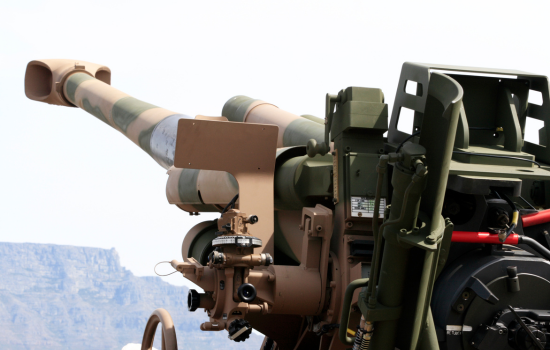Iran thumbs its nose at the world
This commentary was first published in the Jerusalem Post
The abduction of the 15 British soldiers aboard the HMS Cornwall three days ago is Iran’s way of telling or reminding the world that it is a powerful military and regional force, and that the international community should be advised against overstepping its boundaries when it comes to the Islamic Republic’s national interests.
By removing 15 British soldiers at gunpoint the day before the UN Security Council decided on new sanctions directed at Iran, the Iranians were saying quite clearly that they just don’t give a damn.
Though President Mahmoud Ahmadinejad felt the sting of being refused audience in New York for the UN meetings on the sanctions, his audacious disregard for international peace and security is a message to the UN and the Security Council that Teheran is not scared of sanctions, and furthermore, the sanctions being discussed at the moment are not enough to deter the government from its course.
The kidnapping of foreign personnel is nothing new for the Iranian regime. This is a pattern that we have seen since the hostage crisis in 1979, when 66 American hostages were held for 444 days.
Since then, Iran has gone unpunished for all of its aggression directed at the West. As we have seen in the cases of the French and the British before them, Iranian scare tactics play along the lines of attacking foreign embassies in Teheran, or reverting to kidnappings of foreign officials in Lebanon or in Iran itself.
In 2003, when Iran viewed British foreign policy as leaning unfavorably against them, revolutionary guards fired at the British Embassy to reverse the pressure and relieve the strains dictated by Britain’s application of foreign policy. The Iranians have even been so bold to attack an American military base in Lebanon, through its proxy Hizbullah (in 1983).
Israel has had the greatest opportunity to reprimand Iran for its aggressive tactics, but its failure in the war has allowed Iran to grow bolder and stronger.
Only the United States stands capable of putting an end to Iranian attacks, but the Americans are showing too much indecisiveness to convince the world they are about to do so. Iran has not yet attacked the US directly, which seems to be the only thing that would force the Americans into a military conflict with Iran. However, the American military presence in the Gulf is not the deterrent that many attribute to the fact that Iranian and American clashes have not yet erupted. And the Iranians have not yet had retribution for their five revolutionary guards arrested by American forces in Iraq!
The kidnapping of the British sailors in the Shatt al-Arab waterway separating Iraq and Iran is as significant as it is symbolic. The waterway is not only the main artery for Iraqi oil shipments, but it is been the center of a territorial feud between Iraq and Iran which has been going on for nearly 30 years. The claim by the Iranian Foreign Ministry that the sailors were in Iranian waters was a way for the Iranian government to let the new Iraqi government know that they still believe the waterway belongs to them.
If the Iranians go so far as to make a lot of noise over this incident, they may find themselves in a very strong position to attract a deal from the West. The Iranians hope that there are enough political implications in this ordeal to provoke an international incident and drive a wedge between the US and the UK, but the reality of the situation dictates that neither side would let tensions escalate to such a point.
The British could be persuaded to trade assets in exchange for their soldiers. The British know that any of their soldiers being tried for espionage in Teheran would mean unbearable amounts of pressure from inside their own country to get them out before an execution.
It seems strange that during a time of war, and with a heavy military presence, the British did not defend the unfortunate 15. If the British are scared of a full-scale conflict with the Iranians, the future does not look good for the 14 men and one woman of the HMS Cornwall.
Dr. Ely Karmon is a senior researcher at the Institute for Counterterrorism at the Interdisciplinary Center at Herzliya, and was interviewed by Yaniv Salama-Scheer of the Jpost.com






